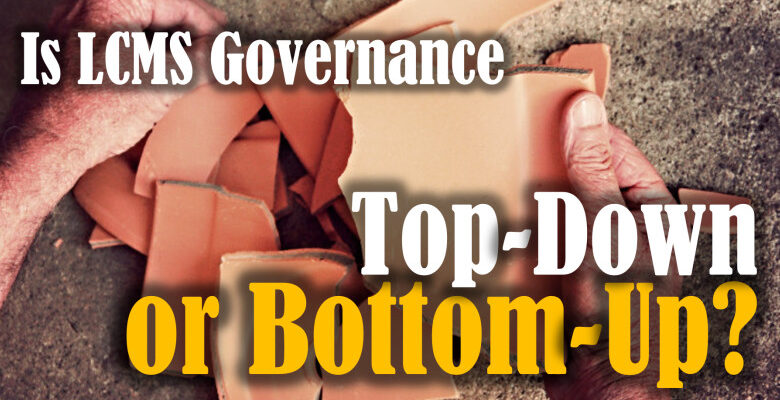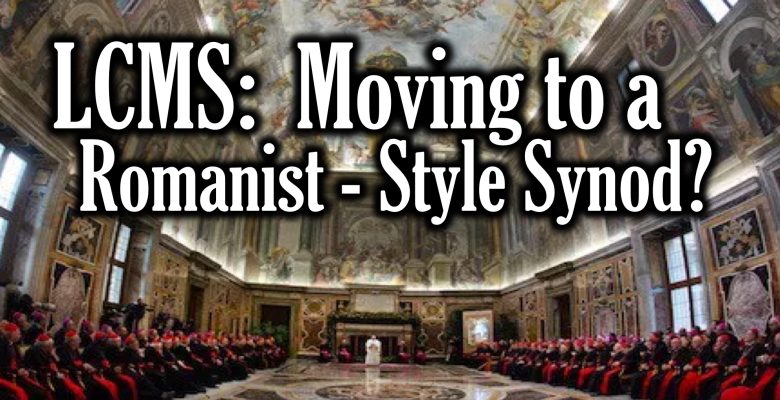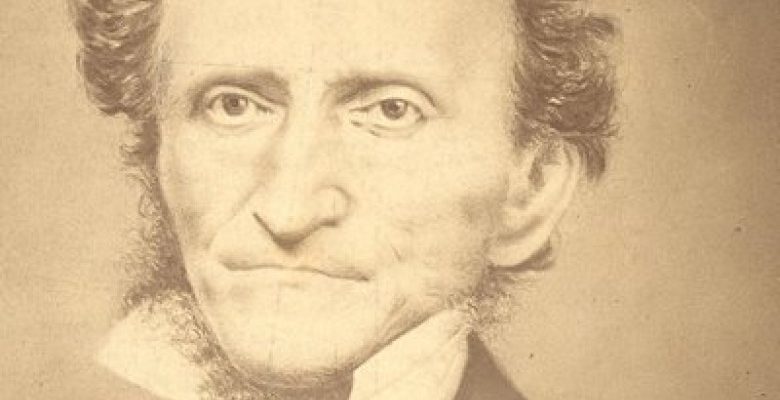In the LCMS struggle with the choice governance structure, this essay supports the historical and Scriptural governance: Synod serves congregations.


In the LCMS struggle with the choice governance structure, this essay supports the historical and Scriptural governance: Synod serves congregations.

Pastor Anthony Steinbronn, President of the New Jersey District, opposes the movement of our Synod toward a church Martin Luther opposed 500 years ago, where all authority is centered in one person and others are authorized to maintain control using the traditions of men rather than the Word of God…ALONE.

The History, Theology and Practice of Congregational Self-Governance in the LCMS In terms of governance and order, the Missouri Synod has throughout its history balanced power between the baptized and the ordained. We have made our decisions at conventions through votes mediated by an equal representation of clergy and laity. These votes were not to be viewed as mandates, but as carefully crafted and thoroughly dialogued advice. In a fun, tongue-in-cheek essay, the Editorial Staff of Congregations Matter has provided another brief history of the LCMS on one issue: Congregational Self-Governance as opposed to the current Synod trend towards hierarchialism. The essay reviews our history, theology, and the unfortunate, current tendency of our Synod to move from prizing the Priesthood of All Believers and Congregational Polity toward a foreign, non-Lutheran emphasis on maintaining and growing the structure itself and fulfilling its needs at the expense of the our “first love”:

We all expect, even demand our “rights” – right to life, liberty, civil rights, human rights, women’s rights, rights of the unborn. As Americans, we have a “Bill of Rights.” As followers of Jesus and members of the LCMS, we have rights within our Synod. That is, until someone tries to take them away. “The Congregation’s Rights” in the Lutheran Church – Missouri Synod also demands our attention. Our Synod has a history of drifting away from our foundations, a tendency in our history to lift up the human organization of Synod, or the clergy, or Synod leadership above the congregation. Sometimes there’s a group – or an individual – pushing us down that road away from an advisory Synod. It is happening now. We need to push back. Executive Summary Before the Synod was formed in 1847, the Saxon immigrants under Pastor (later “Bishop”) Martin Stephan had a polity in

Congregations matter. For several years we have been silent, letting our Synod drift into the trouble we see at every hand. We have been focusing on local matters and serving the Lord in the harvest field. As we have worked, our Synod leadership has lost its focus. Synod’s first responsibility is to serve congregations and assist them in their work for the Kingdom of God. That’s not happening now. Silence Doesn’t Mean We Agree We have been silent — and our beloved Synod has drifted off course. Our Synod’s elected leadership is not focused on their historic roles. Instead, more and more power and decision-making responsibility is in the hands of fewer and fewer — and there is less and less opportunity for other voices to be heard. Our current leadership will not listen to our elected District Presidents. Our Commission on Constitutional Matters (CCM) is supporting our Synodical President in his